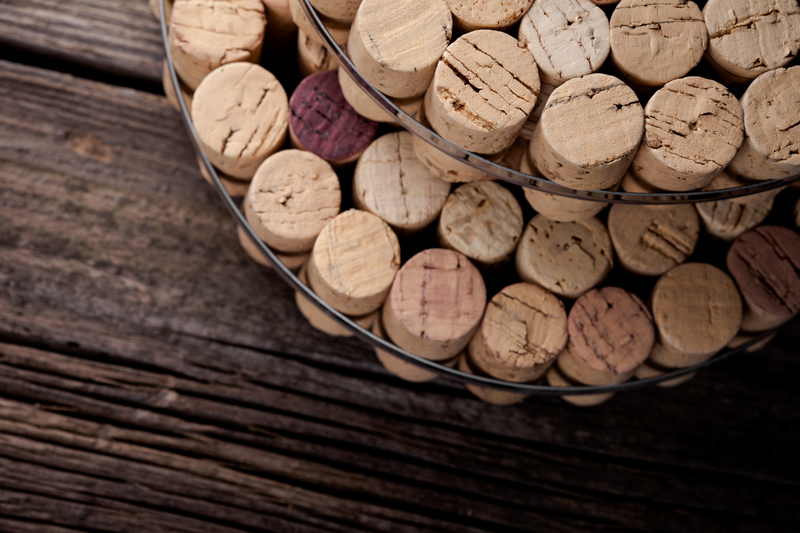Collection and Drop-Off Options for Recycling Metal Cookware
Recycling metal cookware is a smart way to help the environment and reduce landfill waste. Whether you have old pots, pans, or kitchen utensils made of aluminum, stainless steel, or cast iron, it's important to know the best collection and drop-off options for recycling metal cookware in your area. This comprehensive guide explores the many ways you can responsibly dispose of and recycle old cookware, making sure your unwanted items find new life instead of ending up in a landfill.

Why Recycle Metal Cookware?
Before looking at collection and drop-off options for recycling cookware, it's helpful to understand why this process is so crucial. Metal cookware, including pans, skillets, and pots, are typically made from materials like aluminum, stainless steel, copper, and cast iron. These metals are highly valuable and can be recycled many times without degrading their properties.
- Environmental Impact: Recycling metal cookware reduces the demand for raw materials, conserving energy and lowering greenhouse gas emissions.
- Waste Reduction: By keeping pots and pans out of landfills, you minimize environmental pollution and contribute to a more sustainable world.
- Resource Recovery: Recycled metals can be used to manufacture new products, saving significant amounts of energy compared to primary production.
Types of Metal Cookware Suitable for Recycling
Most pieces of metal cookware can be recycled, but some items are easier to process than others. Common kitchen cookware suitable for recycling includes:
- Aluminum pots and pans
- Stainless steel cooking utensils
- Cast iron skillets and Dutch ovens
- Copper-bottomed saucepans
- Metal bakeware, such as muffin tins and baking sheets
*Note: Nonstick cookware with Teflon or ceramic coatings may need special handling or preparation before recycling. Always check with your local recycling center for specific guidance regarding coated items.
Preparing Metal Cookware for Recycling
To ensure your metal cookware is accepted at recycling centers or collection points, follow these _preparation_ steps:
- Remove Handles and Accessories: Detach any plastic, silicone, or wooden handles. Metal-only items are typically easier to process.
- Clean Thoroughly: Wash to remove food residue, grease, or oils. Clean metal items are preferable for recycling facilities.
- Check for Mixed Materials: If your cookware is made from multiple materials, such as glass lids or plastic parts, recycle each component appropriately or consult with your facility for guidance.
Main Collection and Drop-Off Options for Recycling Metal Cookware
1. Local Recycling Centers and Drop-Off Bins
Many municipalities operate recycling drop-off centers or household waste facilities that accept metal objects, including pots and pans. Here's how you can utilize these facilities:
- Locate Your Nearby Facility: Use your city or county website, or search "metal cookware recycling drop-off near me" to find a local site.
- Acceptable Materials: Confirm that the center takes household metals and cookware. Some centers may have specific guidelines for nonstick or coated pans.
- Prepare for Drop-Off: Follow instructions regarding sorting and containerization. Some centers require metals to be separated by type (aluminum, steel, etc.).
- Schedule: Many facilities have specific hours of operation or scheduled collection days for bulk metals or kitchenware.
2. Curbside Metal Recycling Pick-Up
Depending on your community, curbside recycling programs might accept metal cookware for recycling. This is one of the most convenient collection options for cookware recycling.
- Review Guidelines: Check your local curbside program's website or recycling flyer. Look for specific details about kitchenware, as not all curbside collections accept bulk or metal items.
- Preparation: Bundling your cookware or placing it in your recycling bin according to local rules ensures a smooth pick-up process.
- Special Pick-Up Programs: In some cases, larger or heavier cookware (like cast iron) may require a scheduled bulk metal pick-up.
3. Scrap Metal Yards and Junk Dealers
Scrap metal yards are an excellent option for recycling old metal cookware, especially if you have items not accepted by your municipal program. These facilities specialize in collecting, sorting, and processing ferrous and non-ferrous metals.
- Accepted Types: Scrap yards generally accept all metals: aluminum, steel, copper, and iron cookware.
- Potential Payments: Some scrap yards pay for metal by weight. Although individual pots or pans might only earn a small amount, it can add up if you're clearing out multiple items.
- Drop-Off Procedures: Call ahead to ensure your cookware is accepted and to learn about preparation steps, such as removing non-metal parts.
4. Specialty Recycling Events and E-Waste Collections
Look out for local household waste recycling events or community clean-up drives. These events may have designated areas for collecting scrap metals, including old kitchenware and cookware.
- Event Schedules: Check your city's public works department or sustainability office for event dates and collection details.
- Accepted Items: Some specialty recycling events focus on e-waste but will also accept metal goods like cookware.
- Safety First: Use these events as opportunities to dispose of coated or specialty cookware that may need extra steps for recycling.
5. Retail Take-Back Programs and Store Drop-Offs
Some major retailers offer take-back programs where they accept used cookware for recycling, especially during promotional events or when upgrading to new products.
- Program Availability: Retailers like Williams Sonoma, Sur La Table, or Bed Bath & Beyond sometimes offer cookware recycling events or trade-in incentives.
- Brand-Specific Take-Back: Some cookware manufacturers, such as GreenPan or All-Clad, may have mail-back or in-store drop-off recycling programs for their products.
- Check for Promotions: Timing your recycling during special events may make you eligible for store credits or product discounts.
6. Non-Profit Organizations and Donation Centers
If your cookware is still usable but you're simply upgrading, consider donation instead of recycling. Many non-profits and thrift stores accept gently used pots and pans.
- Charities: Organizations like Goodwill, The Salvation Army, and Habitat for Humanity ReStores often accept metal cookware donations.
- Local Food Banks or Shelters: Kitchens that serve the community may appreciate clean, usable cookware.
- Guidelines: Ensure cookware is clean and in good condition. Donation centers typically will not accept damaged or heavily worn items.
Tips for Recycling Different Types of Metal Cookware
Aluminum Cookware
Aluminum is lightweight and valuable in the recycling stream. Be sure to:
- Remove any attached steel screws or handles if possible.
- Scrub off nonstick coatings, or check with the recycler about accepting coated items.
Stainless Steel Cookware
Stainless steel can be recycled repeatedly without losing quality. To ensure your stainless steel cookware gets properly recycled:
- Lean towards metal-only pieces--plastic lids or silicone parts should be separated.
- For highly specialized or heavy-duty items, scrap yards may be your best option.
Cast Iron Cookware
Cast iron is extremely durable and recyclable.
- If your pan is too worn for kitchen use, take it to a scrap metal recycler or drop-off location.
- Cast iron fetches a solid price at scrap yards due to its density.
Nonstick and Coated Cookware
Nonstick pans require special consideration because of their coatings.
- Contact recycling centers to check if they accept Teflon-coated or ceramic-coated items.
- Some facilities require the coating to be removed; others have dedicated processes for coated metals.
Upcycling and Creative Reuse of Old Cookware
When traditional recycling isn't possible, think creatively! Old metal cookware can be upcycled into garden planters, wall decor, craft projects, or even used as serving dishes for large events. Repurposing is an eco-friendly alternative before opting for recycling or disposal.
Common Challenges in Recycling Old Kitchenware
- Coated or Mixed-Material Pans: Items with nonstick, enamel, or mixed materials can be difficult to recycle in standard metal streams.
- Lack of Local Facilities: Not all areas have scrap metal collection sites for cookware, especially in rural communities.
- Incorrect Sorting: Placing metal cookware in the general trash or with the wrong type of recycling contaminates the recycling system.
Always check local regulations and facility guidelines to ensure proper recycling of your kitchen cookware.

Frequently Asked Questions About Metal Cookware Recycling
Can I Put Metal Pots and Pans in My Curbside Recycling Bin?
*Most curbside programs do not accept metal cookware because of weight and processing equipment issues. Always verify with your local provider before including old pots and pans in curbside bins.*
What Should I Do With Severely Damaged or Rusty Cookware?
Severely rusted or broken cookware should still be recycled as scrap metal at a proper facility rather than being thrown away.
Is It Safe to Recycle Nonstick Pans?
Check with local recycling centers, as some do not accept Teflon-coated pans. Look for specialty recycling events or mail-in programs if your local options are limited.
Do Any Stores Take Back Old Pans?
Yes, some national retailers and brands offer take-back programs or organize recycling events. Always inquire with the store's customer service.
Summary: Responsible Choices for Recycling Metal Cookware
By exploring a range of collection and drop-off options for recycling metal cookware, you can make eco-conscious decisions that help the environment and support your community. Whether you use municipal drop-off bins, partner with local scrap yards, participate in specialty events, or reuse and donate when appropriate, you're making a positive impact.
- Ensure your cookware is properly prepared and sorted for recycling.
- Always check your local recycling guidelines.
- When in doubt, call ahead or research online before disposing of old cookware.
_The planet will thank you for taking those extra steps to recycle and responsibly manage your unwanted kitchen metalware!_
```